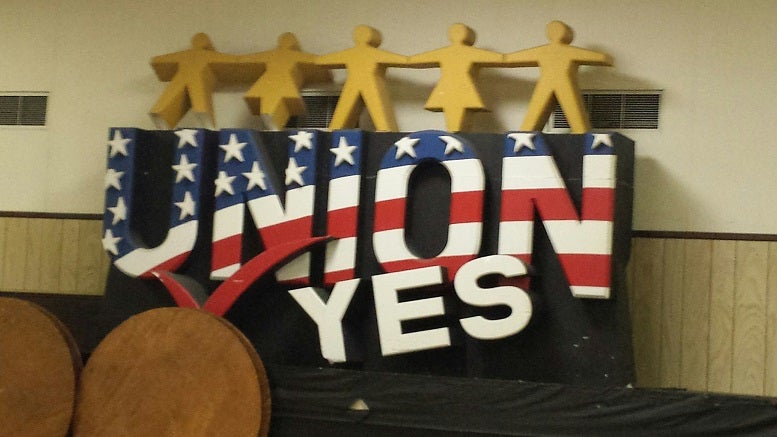Uncategorized
Unions are Answer to Improving Prosperity

This weekend, many Americans will celebrate Labor Day as the de facto end of summer. But the importance of the holiday is much more than just another day off. Millions of workers across the nation are increasingly struggling to support themselves and their families despite holding full-time jobs. And that is unlikely to change unless the public stands up and demands respect and dignity in the workplace.
A key reason behind the decline in the quality of life for many is the reduced presence of unions. Elected officials have increasingly bought into corporate propaganda that argues more jobs will come if states do away with collective bargaining rights. Instead, workers get the privilege of working for less with fewer protections on the job. Big business, however, rakes in bigger profits.
Union membership, however, plays a critical role in improving the livelihoods of workers. A new report by the Economic Policy Institute (EPI) notes collective bargaining plays an essential role in today’s labor market by raising wages and supporting a fairer economy.
“Unions raise workers’ wages and strengthen their rights at work, but they also give working people a voice in our democracy,” EPI President Lawrence Mishel said. “We will never again see consistent robust middle-class wage growth or a healthy democracy without first rebuilding collective bargaining.”
Collective bargaining is essential to workplace fairness because it helps reduce economic inequality. That is key at a time when wages have remained flat despite a sizeable increase in worker productivity over the past few decades. Among men, EPI states the erosion of collective bargaining has been the top reason why the income divide has been growing.
Unions, however, can help all workers, no matter their background. As it stands, 46 percent of members are women; 36 percent are people of color; 42 percent have at least a bachelor’s degree. Whether working in education, transportation, health services or manufacturing, labor has a presence that improves the lives of working Americans.
And there is much to be gained from that membership. On average, a worker covered by a union contract earns 13.2 percent higher pay than someone with the same education, occupation and experience in a non-unionized workplace in the same sector.
But collective bargaining also helps non-union workers by raising their wages. As an economic sector becomes more unionized, non-union employers must pay more to retain qualified workers, and higher pay and improved conditions become the norm.
At a time when middle-class prosperity is slipping away from more and more hardworking Americans, there is an answer to improving livelihoods in this country. It’s the same one that has existed for more than a century. Elected officials just need to encourage union membership instead of stifling it.